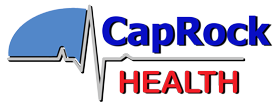As we age, paying attention to our health becomes increasingly important to leading a fulfilling and active lifestyle. This blog aims to provide older adults with valuable insights and effective strategies to actively manage their well-being. Let’s explore key aspects of health and wellness tailored to the unique needs of older individuals.
Nutrition for Vitality
Balancing Nutrient Intake
Nutrition plays a pivotal role in supporting overall health, especially as we age. Ensure your diet includes a variety of nutrient-rich foods, such as fruits, vegetables, legumes, whole grains, lean proteins, and dairy or dairy alternatives. A balanced diet helps maintain energy levels, supports immune function, and promotes optimal organ function.
Hydration Matters
Proper hydration is often underestimated but is crucial for older adults. Dehydration can exacerbate health issues and affect cognitive function. This is especially true in our hot and humid climate. There is no evidence based recommendation for exactly how much fluids someone should consume, and consuming too much fluid can be harmful, especially if you suffer from heart or kidney conditions. But in general, just drink as many fluids as your thirst dictates and be thoughtful about your environment and activity level to ensure you have adequate fluids available to drink.
Exercise for Strength and Flexibility
Tailoring Your Fitness Routine
Staying active is key to maintaining strength, flexibility, and overall well-being. Going to the gym or participating in specific types of exercise routines is great, but not required. Simply staying physically active has significant benefits, so engage in any physical activity that you enjoy, whether it’s walking, swimming, yoga or something else. There is additional benefit to being active outdoors in green spaces.
But, particularly for older adults, it’s important to ensure you are healthy enough for any given exercise you choose. Therefore, before getting started or making major changes, consult with your healthcare provider to create a personalized exercise plan that aligns with your current health status and addresses any specific concerns or limitations.
Strength Training for Bone Health
Incorporate strength training exercises into your routine to promote bone density and muscle mass. Resistance training, even with light weights, can help prevent osteoporosis, increase muscle mass, and reduce the risk of falls. Studies indicate that even a moderate strength training program can double the strength of older adults who are deconditioned in just a few months.
Mental Health and Cognitive Well-being
Stimulating Your Mind
Cognitive health is as important as physical health. Keep your mind active by participating in activities that challenge your brain, such as puzzles, reading, or learning a new skill. Social engagement is equally crucial, so make time for friends, family, and community involvement. The more you use and challenge your mind, the healthier it will be.
Managing Stress
Chronic, emotional stress can negatively impact both physical and mental health. Practice stress-reducing techniques, such as deep breathing exercises, meditation, or mindfulness, to promote relaxation and emotional well-being.
Regular Health Check-ups and Preventive Care
Prioritizing Preventive Healthcare
Regular health check-ups are essential for catching potential issues early and maintaining optimal health. Stay up-to-date on vaccinations, screenings, and preventive care recommended by your healthcare provider. While we tend to associate vaccinations with childhood, there are an increasing number of vaccines recommended for older adults such as shingles, pneumonia, influenza, COVID-19, and RSV.
Medication Management
If you are on medication, ensure proper management by taking medications as prescribed and discussing any concerns or side effects with your healthcare provider. Keeping an updated medication list and always using the same pharmacy can help streamline communication with healthcare professionals. If you are on multiple medications, it is wise to have regular conversations with your doctor about the necessity of all of your medications so you don’t continue on a medication that is no longer necessary.
Conclusion
Embracing a holistic approach to health and wellness is crucial for older adults looking to thrive in their golden years. By focusing on nutrition, exercise, mental well-being, and regular healthcare, you can enhance your overall quality of life. Remember, it’s never too late to prioritize your health.

